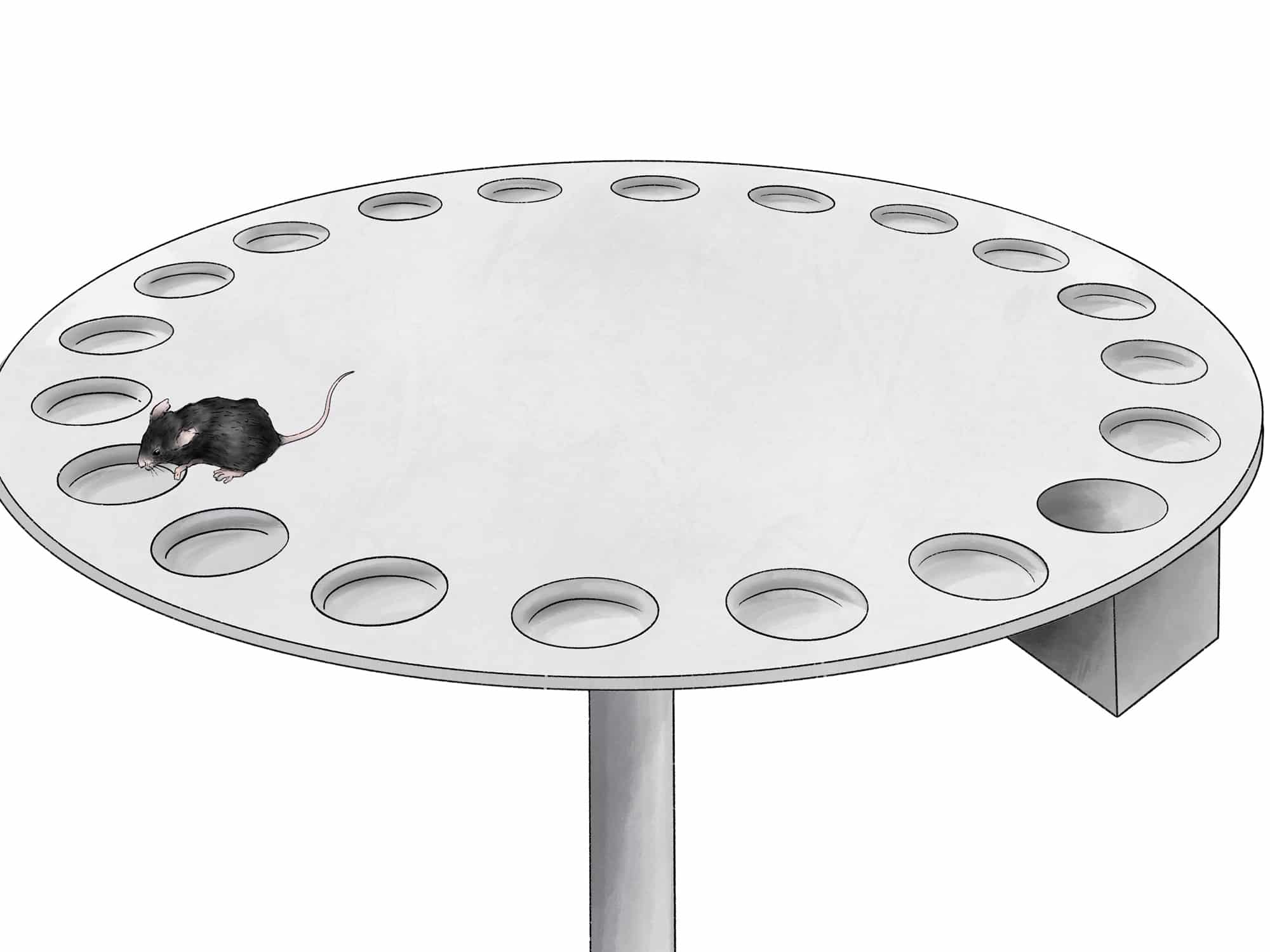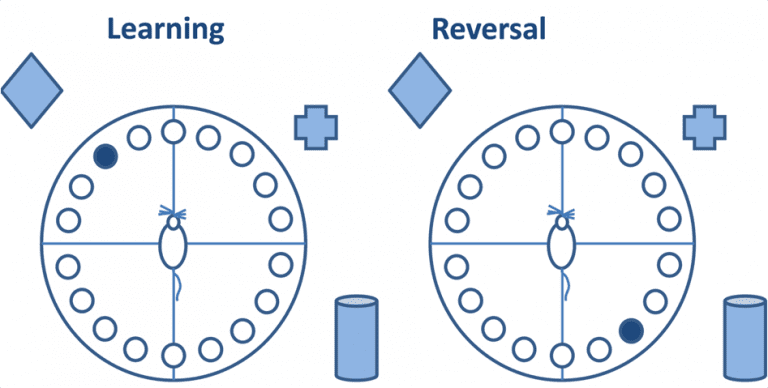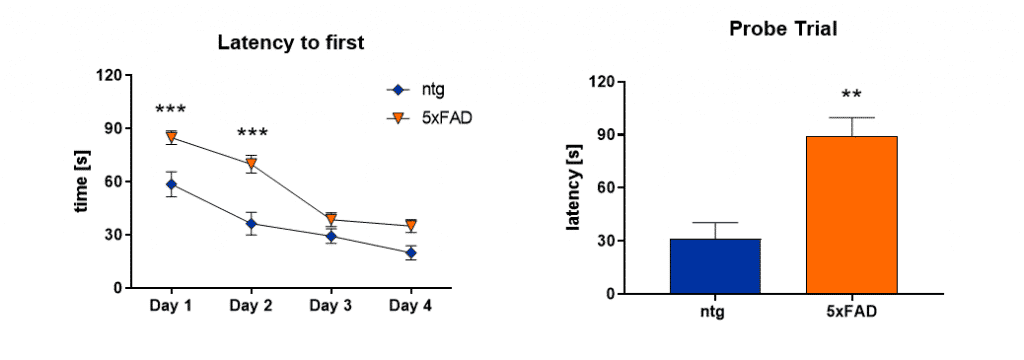
The Barnes maze is a popular test for assessing spatial learning and memory in rats and mice. In contrast to the radial arm maze and Morris water maze, the Barnes maze does not require dietary restrictions or swimming to evaluate behavior. The motivational drive in the Barnes maze test is the rodent’s instinctive aversion to open spaces and natural preference for dark and sheltered spaces.
The test consists of a circular arena with 20 equally distributed holes on its periphery, with one hole serving as a target zone equipped with the animal’s home cage. Looking from the center of the maze, all holes look identical, and the target zone is not visually discriminated. The animal can use proximal or distal visual cues to locate and remember the target hole. Testing begins with placing the animal in the center of the Barnes maze platform. In such an open environment, rodents naturally seek a dark enclosed surrounding, which is provided in the form of the animal´s home cage under one of the holes. Four trials on four consecutive days are performed with a single trial lasting for a maximum of 120 seconds. If the animal does not find the target box within this time, the experimenter guides it to the target where it is allowed to rest for 10-15 seconds. On the fifth day, animals are tested in the probe trial, during which the home cage is removed. A computerized video tracking system is used to measure the escape latency, length of the trajectory to reach the target, target zone crossings, and the abidance in the target quadrant during the probe trial day. Optionally, the reversal learning paradigm can be added to the protocol, where in the subsequent trials the animal´s home cage is mounted to a new location and the acquisition of a new memory is tested.
Barnes maze is commonly utilized to screen the effect of compounds on learning and memory in rodent models where such impairment is present, e. g., Alzheimer´s disease and other dementias, Fragile X syndrome and Huntington´s disease. Since memory impairments often appear in combination with other symptoms, such as anxiety and depression, the Barnes maze is regularly used in combination with other tests, such as open field, and elevated plus maze.
As an alternative to assess spatial learning and memory, the Morris water maze can be used.

Figure 1: Experimental set-up of the Barnes Maze test. Learning and reversal learning of the hippocampal learning protocol. The test can also be performed with a striatal learning protocol (not shown).

Figure 2. Barnes Maze test in 5xFAD transgenic mice. Latency of the first contact with the escape hole (A) and latency of the first contact with the target hole during the probe trial (B). n = 16 per group. Two-way ANOVA with Bonferroni post hoc test (A) and Mann-Whitney U-test (B); **p<0.01; ***p<0.001.
